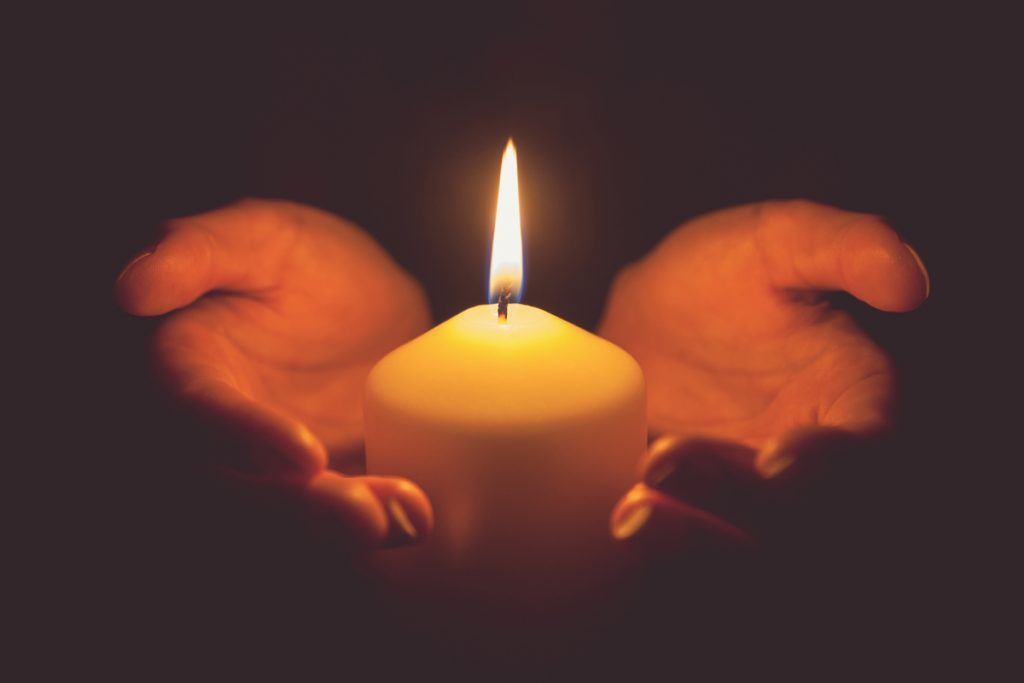by Bill Carroll
“Blessed be the God and Father of our Lord Jesus Christ, who has blessed us in Christ with every spiritual blessing in the heavenly places, just as he chose us in Christ before the foundation of the world to be holy and blameless before him in love. He destined us for adoption as his children through Jesus Christ, according to the good pleasure of his will, to the praise of his glorious grace that he freely bestowed on us in the Beloved. In him we have redemption through his blood, the forgiveness of our trespasses, according to the riches of his grace that he lavished on us. With all wisdom and insight he has made known to us the mystery of his will, according to his good pleasure that he set forth in Christ, as a plan for the fullness of time, to gather up all things in him, things in heaven and things on earth. In Christ we have also obtained an inheritance, having been destined according to the purpose of him who accomplishes all things according to his counsel and will, so that we, who were the first to set our hope on Christ, might live for the praise of his glory. In him you also, when you had heard the word of truth, the gospel of your salvation, and had believed in him, were marked with the seal of the promised Holy Spirit; this is the pledge of our inheritance toward redemption as God’s own people, to the praise of his glory.” (Ephesians 1:3-14)
According to the Catechism, grace is God’s favor towards us, unearned and undeserved. God does not give or forgive like we do. Too often we give only in order to get—or forgive only those who seem worth forgiving. Throughout our lives, we can do nothing to earn grace. Anything we could offer to earn God’s grace is itself a gift. Whatever good qualities we may have—even our ability to work—all of it is grace, a free gift.
This Sunday, we hear about God’s glorious grace freely bestowed upon us in the Beloved. Before the world even began, God chose us and adopted us as God’s children. And, in the life, death, and resurrection of Jesus, we have received forgiveness, according to the riches of his grace that he lavished on us. This word “lavish” implies an abundance and generosity we often don’t give God credit for. To lavish someone with gifts means to give more than that person could ever deserve, out of real generosity and love.
Our imaginations are smaller. We imagine grace doled out bit by bit. Sometimes we picture the sacraments—and other holy activities—as ways to connect to the pipeline and get the grace we need. We imagine grace comes in neat, tidy packages for those special, holy moments in our lives. Even those of us who know better hope our good deeds and pious living will earn us the grace we need. It’s true for us at a gut level, even when we know better.
And yet, the grace of God is something wider and more profound. Frankly, it’s even a little scary. Often, the grace of God comes to us in times of brokenness and loss and disappointment—as well as in our most profound moments of joy and completeness. It takes us by surprise and makes us lose our breath, as we experience a Presence and a Love we couldn’t possibly deserve.
The grace that surrounds us is less like a pipeline and more like an ocean. God’s Grace is immensely powerful and wide. It is utterly free and impossible to control. We can bathe in it. We can drown it. But we can’t bottle it up and control it. Ultimately, grace is the living God—the gift of the Holy Spirit present and active in our lives.
And God asks only for our whole lives in return. And so, God calls us to live as Christians seven days a week—in private and in public—regardless of who we’re with or what we are doing. God loves us so much that God doesn’t want just part of our lives—God wants it ALL.
The Rev. Canon Bill Carroll serves as Canon for Clergy Transitions and Congregational Life in the Diocese of Oklahoma. He has served as a parish priest in Oklahoma, as a parish priest and college chaplain in Southern Ohio, and as a member of a seminary faculty. In 2005, he earned his Ph.D. in Christian theology from the University of Chicago Divinity School.

